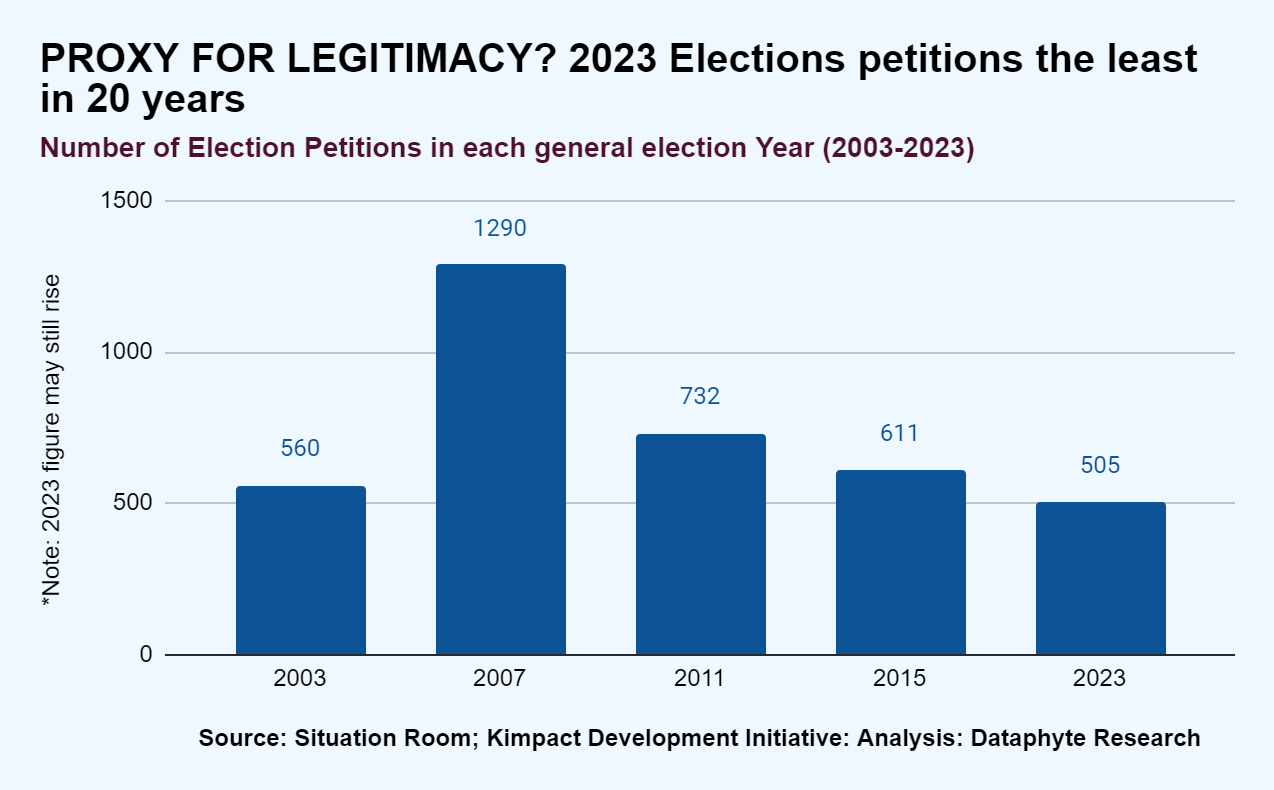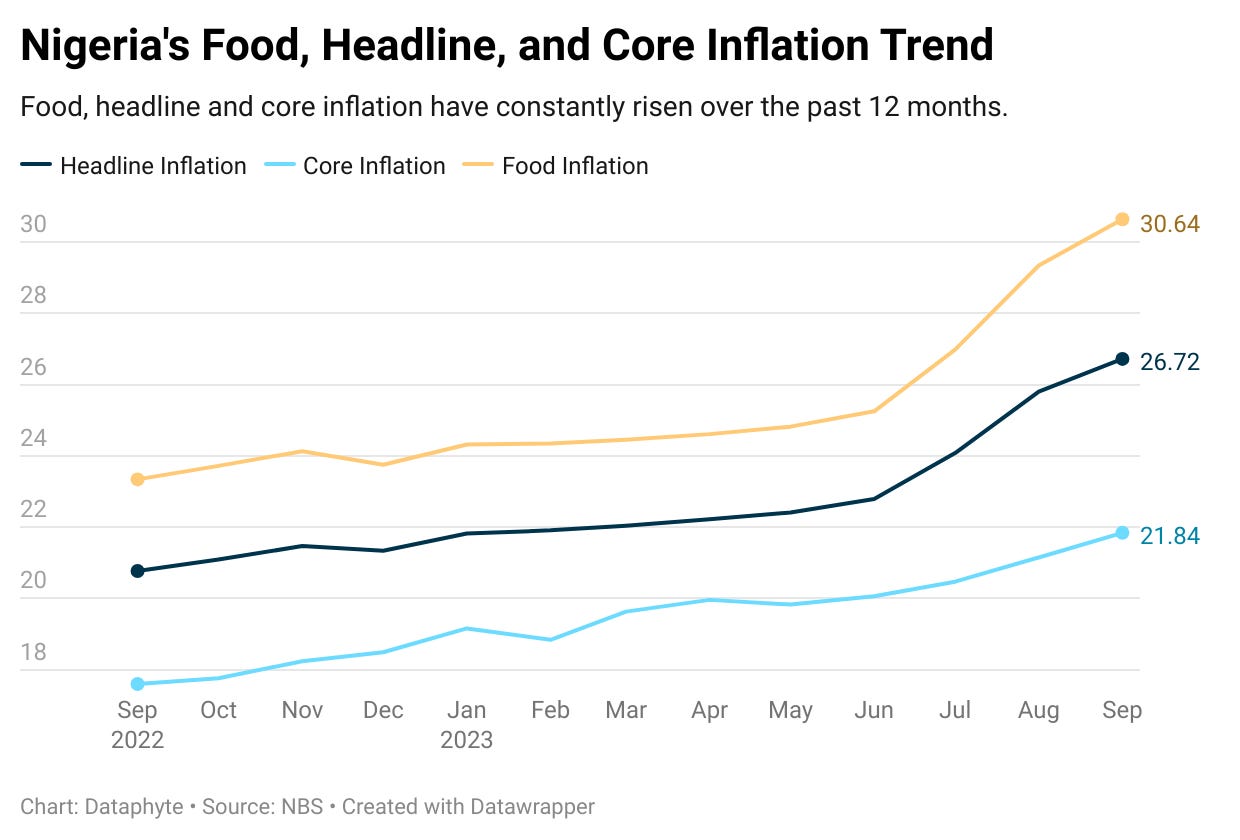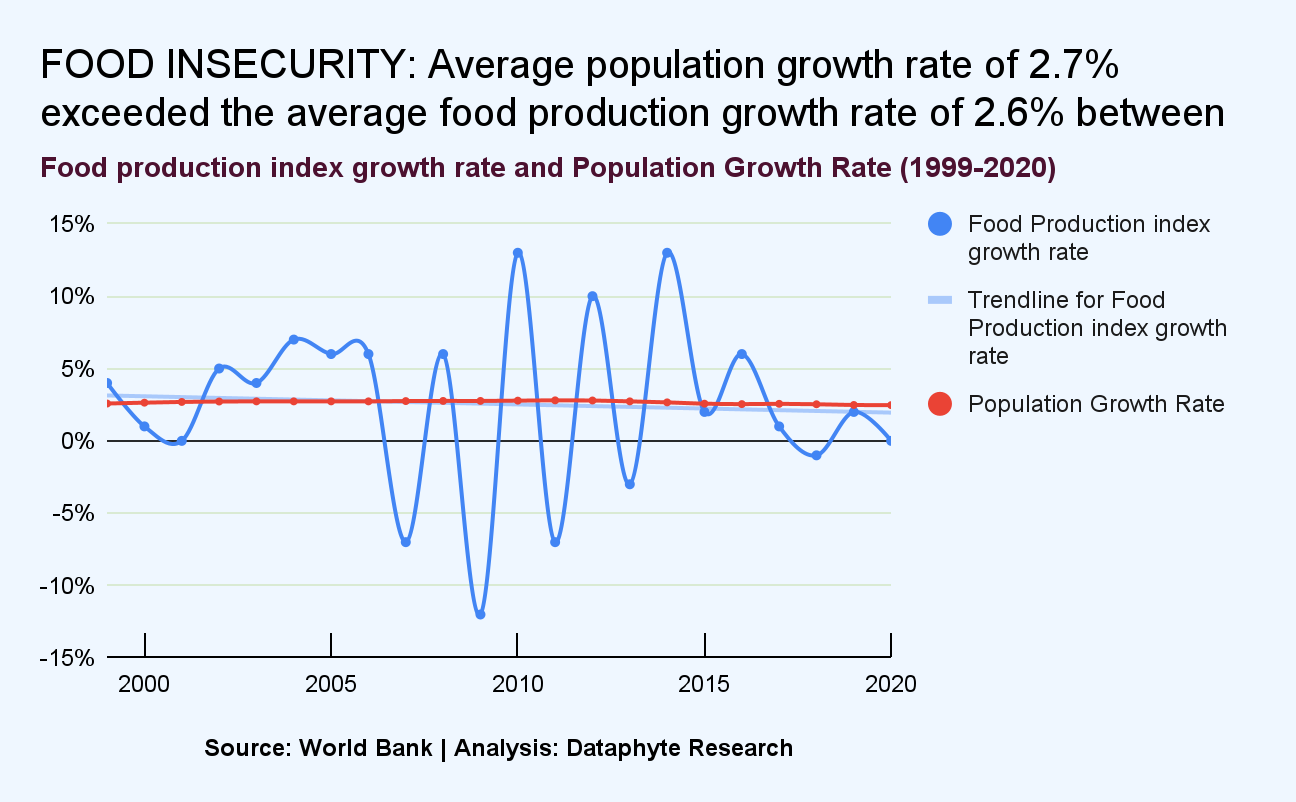On Legitimacy and Legacy: Tinubu’s head and Troubles ahead (3)
“Uneasy lies the head that wears the crown 👑 until the crown is removed.”
This was the opening line of the first in this series 7 months ago.
Now, with the 7 issues that threatened the legitimacy of his government resolved by 7 Supreme Court justices, Tinubu’s crown has finally come to stay on his head, albeit with the pleasant unease of troubles ahead.
With victory at the Supreme Court last Thursday, no other charge is more fitting for the septuagenarian President than the closing lines of the second piece in the series: “For a man who was not served his certificate of return “a la carte”, nor indeed many of his certificates, he must brace up to surmount the enormous challenges that come with bearing the burden of 200 million people - of wearing the much-coveted crown of the President of the Federal Republic of Nigeria and serving as the Commander in Chief of its Armed Forces.”
One of the 7 significant threats to Tinubu’s victory at the polls was his certificates. For instance, his opponent, former Vice President Atiku Abubakar, travelled over land and sea to prove that Tinubu had presented a fake certificate to the Independent National Electoral Commission INEC.
The allegation that Tinubu presented a fake certificate to INEC was dismissed.
Tinubu’s dual citizenship allegation was thrown out.
The election could not be nullified just because INEC had not posted the results on its IReV portal at the expected time.
The failure to secure 25% of votes in the Federal Capital Territory (FCT), Abuja, could not invalidate Tinubu's victory.
Petitioners alleged rigging against Tinubu, but they failed to prove their allegations.
The issue of APC's double nomination of Vice President Kashim Shettima had been decided by the court on May 26, 2023, and was not a significant threat to Tinubu's victory.
The issue of Tinubu's forfeiture of $460,000 drug money was raised when the Respondents had already filed their process.
Beyond Tinubu’s victory at the court, the conduct of INEC in this election attracted the least number of petitions since the 2003 elections.
If the number of election petitions is used as a proxy to measure the conduct of an election umpire, data suggests that the election that brought in President Tinubu and the others in the February 2023 polls could have produced more legitimate governments at the federal and state levels than the previous ones in the last 20 years of Nigeria’s unbroken democracy.
Yes, the legal actions against Tinubu’s legitimacy are now behind, but Tinubu’s legacy is still very much on the line.
In the first piece, we captured 3 commitments Tinubu made that he would be judged by: “Tinubu’s extemporaneous and extraneous mix of words revealed 3 troubles that were top of his subconscious mind: food insecurity, general insecurity, and interethnic insecurities.”
The question now has gone beyond “What will they eat? “Corn, agabado, ewa, and yam in the afternoon…,” to “Why they often don’t eat?”
On Tinubu’s watch, it’s harder for the people to eat his promised diet due to skyrocketing food prices.
Food inflation, a measure of the rate of increase in prices of food, has increased from 24.8% in May, when Tinubu was sworn in, to 30.6% in September.
This is compounded by the free fall of the Naira against the dollar and other international currencies. Inflation in the local and international context threatens the affordability and availability of food and all that is necessary for human survival and well-being.
Besides the high food inflation rate, the high population growth rate could also be responsible for Nigeria’s food insecurity. “Since the return to democracy in 1999 till 2020, the average population growth rate of 2.7% exceeded the food production growth rate of 2.6%.
In a seeming emergency response to this, the President launched an 11-point plan to revamp agricultural production immediately. “As with most emergencies, there are immediate, medium- and long-term interventions and solutions. In the immediate term, we intend to deploy some savings from the fuel subsidy removal into the agriculture sector focusing on revamping the agricultural sector,” the statement read.
Despite criticisms about the methods, Mr Tinubu’s National Emergency on Food Security responds to the “areas of improvement” suggested in The Economist Impact 2022. These include efforts to lower the average food costs, starting food safety net programmes, and food security and access policy commitments.
Nigeria’s Food Security: Strengths and opportunities for action
Source: The Economist Impact 2022
Then there is the trouble of tackling security all over the country, especially those occasioned by interethnic rivalry.
Several reports have shown strong links between general insecurity and food insecurity.
“Conflicts and worsening insecurity in certain regions of the country, especially in the northeast, northwest and north-central have equally disrupted agricultural activities and displaced farmers. This has hindered food production and distribution, as many farmers are unable to visit their farmlands for fear of attacks by bandits or herdsmen in the last decade,” Premium Times observed.
The data from the 2022 Global Peace Index suggests that Tinubu’s proposal to increase the recruitment of youths into the army and security organisations to tackle insecurity head on may have merit.
However, effective soldiers and police officers worldwide require more than just agricultural resources like cassava and corn to combat insurgents, bandits, and kidnappers. While Tinubu's motivation to address Nigeria's security situation was well-intentioned, his proposed methods were perceived as overly simplistic by many.
While the deployment of more military and security personnel reduced threats to safety and security, data shows that it does not stop conflict altogether.
“About 629 Nigerians were killed within the first 45 days under President Tinubu, according to data from SBM Intelligence, an analysis platform,” Business Day reported.
Yes, President Tinubu has overcome the trouble of legitimacy. The next hurdle is his legacy - finding solutions to the socioeconomic problems that bedevil the Nigerian state and its people.
We wish him the pleasant unease of every head that wears the crown.
Thanks for reading this Data Dive. Have a refreshing day!








